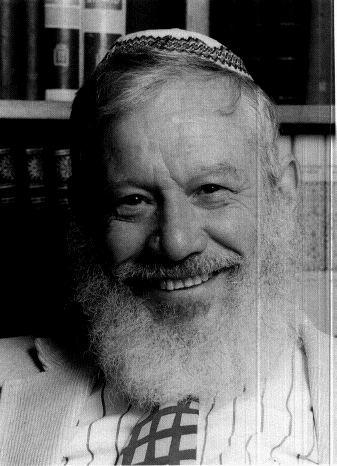| Profile | Major Works | Resources |
Robert J. Aumann, 1930-

Robert J. Aumann's has been one of the leading figures in the mathematical surge that has
characterized Neo-Walrasian economics and game theory in the past forty years. Aumann entered into
economics via cooperative game theory -
In Neo-Walrasian theory, Robert Aumann is perhaps best known for his theory of core equivalence in a "continuum" economy. Aumann introduced measure theory into the analysis of economies with an infinite number of agents - formalizing the "perfectly competitive" scenario. In his classical 1964 paper, Aumann proved the equivalence of the Edgeworthian core and Walrasian equilibrium allocations when there are an uncountable infinite number of agents - thereby providing the limit case for future work on core convergence. In order to prove this result was not vacuous, Aumann went on to prove the existence of equilibrium (1966) in this "perfectly competitive" scenario. On his way, he contributed to mathematics itself by providing a definition of the "integral" of a correspondence (1965), which was previously absent.
Previously, Aumann (1962) had swung Ockham's razor and helped remove the axiom of completeness of preferences from the Walrasian theory of choice. In another classical paper with F.J. Anscombe in 1964, Aumann formalized the notion of "subjective probability", a concept that had been earlier forwarded by Leonard Savage, that profoundly changed the theory of choice under uncertainty.
His contributions to game theory have perhaps been no less path-breaking. Aumann entered game theory in 1959 to carefully distinguish between infinitely and finitely repeated games. With Bezalel Peleg in 1960, Aumann formalized the notion of a coalitional game without transferable utility (NTU) - one of the organizing beacons of his later research. With Michael Maschler (1963), he introduced the concept of a "bargaining set". In 1974, Aumann went on to identify "correlated equilibrium" in Bayesian games. In 1975, Aumann went on to prove a convergence theorem for the Shapley value. In 1976, he formally defined the concept of "Common Knowledge". Also in 1976, in an unpublished paper with Lloyd Shapley, Aumann provided the perfect folk theorem using the limit of means criterion.
For Aumann, game theory is clearly the more "general theory". His ruminations on the role of game theory in economic analysis are wonderfully laid out in Aumann (1985).
Robert Aumann won the Nobel Memorial Prize for Economics in 2005, with Thomas Schelling, "for having enhanced our understanding of conflict and cooperation through game-theory analysis".
|
Major Works of Robert J. Aumann
|
HET
|
|
Resources on Robert J. Aumann
|
All rights reserved, Gonçalo L. Fonseca
